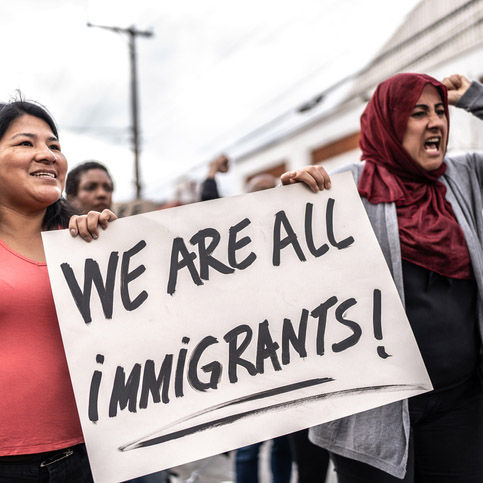Empowering Immigrant Societies: Fostering Stability and Prosperity at Home
- BARIS Institute

- May 16, 2024
- 2 min read

Immigration has long been viewed as a pathway to opportunity and a means of escape from adversity. However, the root causes of migration often lie in the economic, social, and political challenges faced by individuals in their countries of origin. In this piece, we explore the concept of empowerment as a strategy for addressing the underlying drivers of migration and fostering stability and prosperity within immigrant societies.
Understanding the Cycle of Migration
The decision to migrate is rarely taken lightly. It is often driven by a combination of push and pull factors, including economic hardship, political instability, social injustice, and environmental degradation. While migration can offer immediate relief from these challenges, it often perpetuates a cycle of dependency and vulnerability, as individuals and families are uprooted from their communities and forced to seek refuge elsewhere.
Empowerment as a Solution
Empowerment entails equipping individuals and communities with the tools, resources, and opportunities they need to assert control over their lives and shape their own destinies. In the context of immigrant societies, empowerment takes on a multifaceted approach:
· Economic Empowerment: By investing in economic development initiatives, job creation programs, and entrepreneurship opportunities in origin countries, individuals are empowered to build sustainable livelihoods and support their families without having to resort to migration as a means of survival.
· Social Empowerment: Strengthening social infrastructure, healthcare systems, and educational institutions in origin countries enables individuals to access essential services and opportunities for personal and professional growth, reducing the need to seek refuge elsewhere.
· Political Empowerment: Promoting good governance, transparency, and accountability in origin countries empowers citizens to participate actively in decision-making processes, advocate for their rights, and hold authorities accountable for their actions, fostering a sense of ownership and belonging within their communities.
· Environmental Empowerment: Addressing environmental degradation, climate change, and natural disasters in origin countries helps protect livelihoods, preserve ecosystems, and safeguard communities from displacement, reducing the pressure to migrate in search of safer and more sustainable environments.
Building Bridges, Not Barriers
Empowering immigrant societies is not only a moral imperative but also a pragmatic solution to the challenges of migration. By addressing the root causes of migration and fostering stability and prosperity within origin countries, we can reduce the need for individuals to leave their homes in search of a better life elsewhere. Moreover, by empowering immigrant communities to thrive in their countries of origin, we can create stronger ties of solidarity, cooperation, and mutual support between nations, building bridges of understanding and empathy rather than erecting barriers of division and exclusion.
Conclusion: A Vision of Empowered Immigrant Societies
As we strive to address the complex challenges of migration, let us embrace a vision of empowered immigrant societies where individuals are not compelled to leave their homes in search of a better life elsewhere. By investing in economic, social, political, and environmental empowerment initiatives in origin countries, we can create a future where migration is not seen as a solution but as a choice, where individuals are free to pursue their aspirations and contribute to the prosperity and well-being of their communities, both at home and abroad. Together, let us work towards a world where empowerment is the foundation of stability, resilience, and prosperity for all.
.png)


Comments